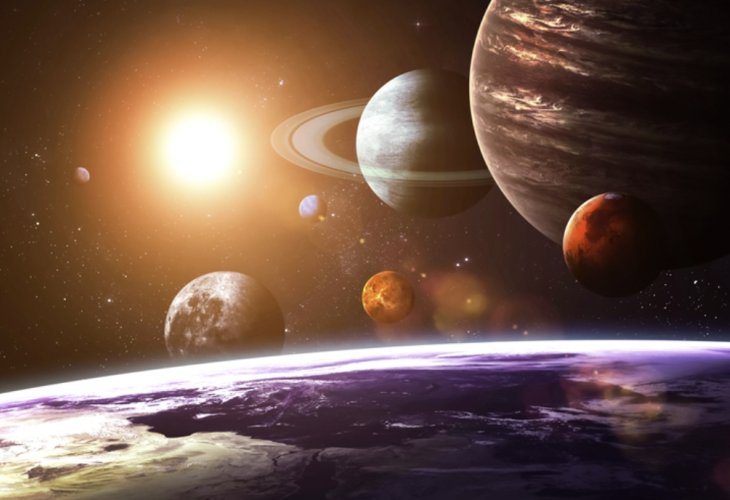Faith
Is the Universe Infinite? Science, Torah, and the Proof of a Creator
Exploring why the universe is finite, how natural laws reveal divine design, and why randomness can’t explain creation
 (Photo: shutterstock)
(Photo: shutterstock)
Dafna asks: "Hello Rabbi. Logically, I understand that there must be a Creator of the universe. After all, the probability that a universe like ours with such brilliant natural laws, could come into existence on its own is impossible. But my question is: isn’t the universe infinite?"
* * *
Hello Dafna, and thank you for your thoughtful question.
The universe is indeed vast, but it is not infinite. There is actually a number to the stars, which NASA estimates.
In addition, a well-established scientific principle known as the Law of Conservation of Energy teaches us that the total amount of matter and energy in the universe is fixed. Energy can change form, but it can never be created or destroyed. This corresponds perfectly with the verse in Tehillim (148:6): “For He commanded, and they were created. He established them forever and ever, He issued a decree that shall not be broken.”
Because the total amount of matter is finite, the space that contains it — the universe itself, must also be finite.
Scientific observations using the Hubble Space Telescope have demonstrated that the universe is expanding: galaxies are moving farther apart from one another. This proves that the universe, including all the stars and galaxies, was once much smaller, compressed into a single, tiny point — a singularity, before it suddenly came into existence.
This means that the universe has an age and a beginning. It was created yesh me’ayin — something from nothing. Therefore, it cannot be infinite. If the universe had a beginning, then it required a Beginner — an unbounded Being who exists beyond matter, space, and time, infinite and eternal, who created the universe.
Why “random chance” is not an answer
Without a Lawgiver, there would be no reason for order in the universe. The consistent natural laws we observe are evidence of an intelligent Lawgiver who sustains the cosmos with wisdom. Without Him, the universe would collapse into chaos.
Some skeptics suggest: “Perhaps the universe came about by chance — a rare cosmic accident?”
Often, the answer given is that such a probability is so small it is effectively impossible. But this doesn’t fully remove the doubt, because the atheist might respond: “Even if it’s absurd, I still choose to believe it’s random.”
The correct response is that randomness never existed in the universe. It’s not about improbable odds, but about whether order and law exist at all.
What is randomness?
Randomness means an unconscious result, one of many possible outcomes. However, in our universe there were never multiple options. From its very first moment, the universe appeared with precise, immutable natural laws. There were no “alternative possibilities.”
As Rambam (Maimonides) wrote in Yesodei HaTorah 1:1: “If it could be imagined that He [the Creator] did not exist, nothing else could exist.” In other words, without God, there would be no creation and no laws of nature.
The question therefore isn’t about one chance in a billion, but one or zero. Either there is creation, or there is nothing. Either there is law, or there is chaos. Since we clearly observe creation and law, there must be a Creator.
Order always points to a Lawgiver
The universe is not a card game, a lottery, or the roll of a dice. From its very first instant, the universe operated under a single default of strict lawfulness. That lawfulness points to an intelligent Creator who established and sustains it. The Designer of the universe is not only infinite but also conscious and purposeful.
Maimonides in Guide for the Perplexed (Part II, Chapter 20) cites Aristotle himself, who proved that nature does not operate randomly: natural phenomena are consistent, ongoing, and predictable, not accidental. Therefore, the First Cause must be a supreme intellect — what we call God.
A note on “parallel universes”
Even those who theorize about “multiple universes” cannot escape the truth that each of these supposed universes would also be bound by its own laws. Laws require a Lawgiver. If the ultimate source were random, then no laws would exist anywhere — only chaos. The very presence of law proves intentional design.
Thus, behind our universe — or any universe, there must be a purposeful, intelligent Creator.

